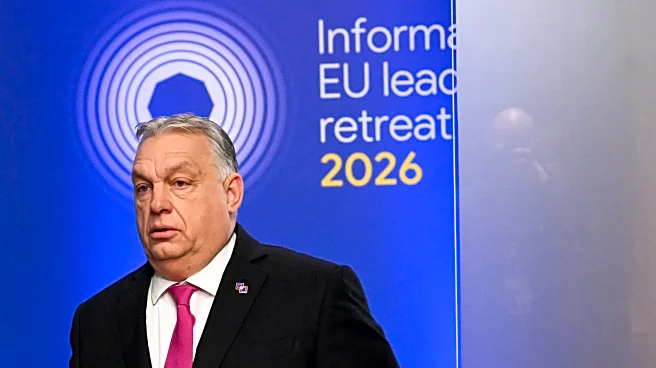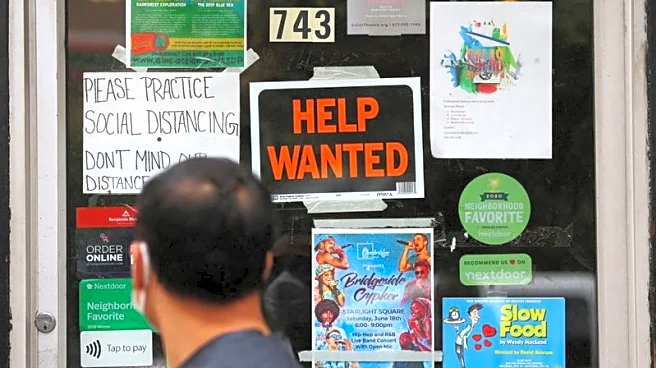What's Happening?
International student arrivals to the United States have decreased by 19% in August 2025 compared to the previous year, according to data from the National Travel and Tourism Office. This decline is attributed to travel bans and visa restrictions, particularly affecting students from countries such as Iran, Syria, and India. The Trump administration's policies, including a freeze on visa interviews during peak times, have contributed to the reduced capacity at key posts worldwide. Despite these challenges, some data from the Student Exchange and Visitor Information System (SEVIS) showed a slight increase in international enrollment, though experts question its accuracy due to potential data recording issues and transitions to H-1B status.
Why It's Important?
The decline in international student arrivals has significant implications for U.S. universities and local economies. Universities face potential revenue losses from decreased tuition fees, while college towns may experience economic downturns due to reduced spending by international students. The broader U.S. economy could also be affected, as international students contribute to cultural diversity and innovation. The situation highlights the impact of immigration policies on higher education and the need for strategic adjustments to maintain the U.S.'s position as a leading destination for international students.
What's Next?
The full impact of the decline in international student enrollments will become clearer in the coming months, with experts predicting further decreases in 2026 as students opt for institutions in other countries. The Institute of International Education is expected to release its Fall Snapshot report in mid-November, providing more detailed insights into enrollment trends. Universities and policymakers may need to reassess strategies to attract international students and mitigate the negative effects of current policies.
Beyond the Headlines
The decline in international student arrivals may have long-term effects on the U.S. higher education system's global competitiveness. As other countries become more attractive destinations for international students, the U.S. may need to address policy barriers and enhance its appeal to maintain its leadership in global education. The situation also raises ethical considerations regarding the balance between national security and educational access.












